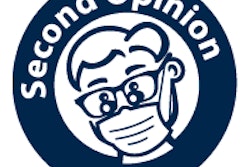
More than 30% of disciplinary actions discharged by the New Mexico Board of Dental Health between June 27, 2011, and August 7, 2012 involved dental professionals affiliated with dental management service organizations (DMSOs).
According to the state regulatory board's website, 24 different entities were sanctioned during this time period. One violator, which accumulated five different sanctions, was recorded as a single violator. No other violator generated more than a single dental board sanction.
Violators were divided into four categories:
- Nonprofit (public health clinic, Veterans Affairs clinics, native tribal clinic, teaching facility, etc.)
- Solo private practice
- Small group practice (three doctors or fewer)
- Interstate DMSO
Each violating entity was assigned a lettered designation, although the identity is public record information. DMSOs were likewise assigned a lettered designation. Tracking down the employment association at the time of violation was sometimes available within the dental board's formal complaint. However, often an Internet search was required.
Violations ran the gamut from alcohol and chemical abuse to advertising violations and breaches in standard of care, and everything in between. No attempt was made to correlate the type of violation to the employment association of the offender.
Interestingly, there were no disciplinary actions discharged against nonprofit entities or their dentists, during this time frame. The largest group generating disciplinary actions was assigned to solo private practicing dentists (54.2%). However, according to the ADA's 2010 Survey of Dental Practice-Employment of Dental Practice Personnel, solo practitioners comprised 69.6% of all dentists employed in private practice for 2009.
The statistic of concern is the 33.3% of disciplinary actions involving employment association with interstate DMSOs. According to the 2008 Health Policy Resources Center, only 3% of dentists are associated with very large group practices (20 or more dentists; ADA News, April 9, 2012). This represents a statistical order of magnitude of one, or approximately 10 times.
This finding was confirmed by Lili Reitz, executive director of the Ohio State Dental Board, who reported for a "Frontline"interview that in 2011 25% of complaints filed with the dental board (140 complaints in all) were against dentists at corporate chains.
The data in this report may be of interest to state regulatory dental boards, state and federal regulators of dental Medicaid, overseers of fraud and abuse for private insurance carriers, and state and federal prosecutors. But the findings of this report should also prompt concern for the general public and dental consumers in particular.
|
Discipline totals
|
Michael W. Davis, DDS, maintains a private practice in Santa Fe, NM. He chairs the Santa Fe District Dental Society Peer Review Committee. Dr. Davis has authored numbers of technical articles on clinical dentistry and dental ethics.
The comments and observations expressed herein do not necessarily reflect the opinions of DrBicuspid.com, nor should they be construed as an endorsement or admonishment of any particular idea, vendor, or organization.



















